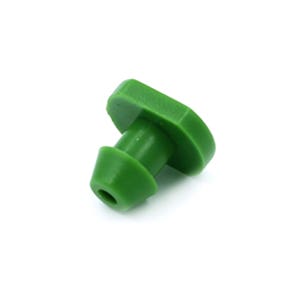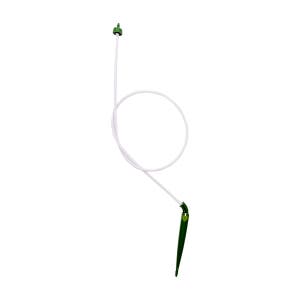Rainwater Harvesting
Rainwater harvesting is an effective method to collect and store rainwater for irrigation purposes. It involves capturing rainwater from roofs or other surfaces and storing it in tanks or reservoirs.
Benefits of Rainwater Harvesting:
-
Environmentally Friendly: Utilizing rainwater reduces reliance on freshwater sources and helps preserve natural water resources.
-
Cost-Effective: Rainwater is free, and once the initial setup is in place, there are minimal costs associated with its collection and storage.
-
Reduced Water Bills: By using rainwater for irrigation, growers can significantly reduce their water bills, especially during dry seasons.
Greywater Recycling
Greywater refers to lightly used household water from sources such as sinks, showers, and washing machines. Greywater recycling involves collecting and treating this water for reuse in irrigation systems.
Benefits of Greywater Recycling:
-
Water Conservation: Greywater recycling reduces the demand for freshwater by repurposing water that would otherwise go down the drain.
-
Nutrient Content: Greywater contains traces of nutrients that can benefit plant growth, reducing the need for additional fertilizers.
-
Savings on Water Costs: Utilizing greywater for irrigation can lead to substantial savings on water bills.
-
-
-
-
-
Stormwater Management
Stormwater management involves capturing and storing runoff from rainfall events. It includes techniques such as the construction of retention ponds or the use of permeable surfaces to allow water to infiltrate the soil.
Benefits of Stormwater Management:
-
Flood Prevention: Proper management of stormwater reduces the risk of flooding and runoff, protecting both the cannabis garden and surrounding areas.
-
Water Recharge: By allowing stormwater to infiltrate the soil, it replenishes groundwater resources and supports overall water availability.
-
Cost-Efficiency: Implementing stormwater management practices can save costs associated with drainage systems and reduce the need for additional irrigation water.
Aquaponics and Hydroponics
Aquaponics and hydroponics are soilless cultivation methods that utilize recirculating water systems. These systems recycle and filter water, allowing it to be continuously reused for plant growth.
Benefits of Aquaponics and Hydroponics:
-
Water Conservation: Aquaponics and hydroponics systems require significantly less water compared to traditional soil-based cultivation methods.
-
Nutrient Efficiency: The recirculating water systems in these methods optimize nutrient uptake by plants, reducing nutrient waste and the environmental impact of fertilizer runoff.
-
Year-Round Cultivation: Aquaponics and hydroponics systems enable year-round cultivation, independent of weather conditions, maximizing productivity.
By exploring these sustainable water sources and implementing efficient irrigation practices, cannabis growers can minimize their environmental footprint and ensure the long-term sustainability of their cultivation operations.






















